This year, the list of states with marriage equality expanded to include Oregon, among others. While that's big news, of course, gay and lesbian couples could already legally marry in a certain part of the state. Five years before the state of Oregon established legal same-sex marriage, the Coquille Indian Tribe amended its marriage laws to include same-sex couples. Because Native-American tribes are federally recognized sovereign nations, they can create their own laws regarding marriage.
The Coquille Tribe was the first of 10 tribes that have now extended marriage rights to include same-sex couples, many of them doing so years before their states. The latest to join the list is the Puyallup tribe in Washington, which made the announcement last week.
The new marriage laws have resulted in many beautiful ceremonies and happy couples who have waited years to be recognized not only by federal and state governments but also by their tribes and communities.
Two of the largest tribes, the Navajo and Cherokee, remain staunchly opposed to same-sex marriage. But if the 10 tribes in this slideshow are any indication, many more tribes may soon re-examine their laws.
 Coquille Tribe, Oregon (2009)
Coquille Tribe, Oregon (2009)
The Coquille Indian Tribe adopted a law that would extend all tribal benefits of marriage to same-sex couples -- at least one of whom must be Coquille -- in 2009. At the time, the Oregon constitution prohibited same-sex marriages, but as a federally recognized sovereign nation, the Coquille were not bound by the state's policies. So, when Kitzen and Jeni Branting (shown at left) were married at the Coquille Indian Tribe's plankhouse at the tribe's Coos Bay reservation, they were the first legal same-sex marriage not only of the tribe but also in all of Oregon. Although their marriage was solely recognized by the tribe at the time, Kitzen Branting noted, "My tribe recognizes the marriage, so that's really important to me. Anytime we come to a tribal function, I know my marriage is just as valid as anyone else's marriage."
 Mashantucket Pequot Tribe, Connecticut (2010)
Mashantucket Pequot Tribe, Connecticut (2010)
In June of 2010, the Connecticut-based Mashantucket Pequot Tribal Nation changed the wording of its 2008 marriage code from "A man and a woman may be joined in marriage on the Mashantucket Pequot Reservation" to "Two persons may be joined in marriage on the Mashantucket Pequot Reservation." At the same time, the tribe also announced new laws prohibiting discrimination based on sexual orientation or gender identity, and revised employment policies to reflect the change. The tribe is "no stranger to discrimination and the struggle for dignity and equality," said Robert Victoria, chief marketing officer for Foxwoods Resort Casino, run by the Pequot.
 Suquamish Tribe, Washington (2011)
Suquamish Tribe, Washington (2011)The issue of same-sex marriage in the Suquamish tribe was championed by then 28-year old Heather Purser (shown, left), a member of the tribe who grew up in Kitsap County, the main hub of the tribe. A commercial seafood diver from Olympia, Washington, Purser personally lobbied the Suquamish tribe's general council to make same-sex marriage legal.
"I realized that I do have the power to change my situation," Purser said to the Washington Post. In March of 2011 when Purser spoke at a meeting of the council, she was surprised to find that the majority of the audience supported her arguments, and later that year in June, the council unanimously voted in favor of same-sex marriage.
 Little Traverse Bay Bands of Odawa Indians, Michigan (2013)
Little Traverse Bay Bands of Odawa Indians, Michigan (2013)
When the tribal council of the Little Traverse Bay Bands first voted on a proposal to make marriage equality legal in summer of 2012, the proposal was rejected on a 5-4 vote. Just a few months later though, in March 2013, the proposal received another 5-4 vote, that time in favor of same-sex marriage, after the addition of a provision that required at least one member of the couple to be a tribal citizen. That very day, tribe member Tim LaCroix married his partner of 30 years, Gene Barfield in a ceremony officiated by Tribal Chairman Dexter McNamara. The two Navy veterans are the only couple so far to take advantage of the new legislation, but they said they hoped that their marriage and the new tribal law would help forward acceptance of same-sex marriage in Michigan. Lo and behold, almost exactly one year later on March 21, U.S. District Judge Bernard A. Friedman ruled same-sex marriage legal, although enforcement of the ruling is currently stayed indefinitely.
 Pokagon Band of Potawatomi Indians, Michigan (2013)
Pokagon Band of Potawatomi Indians, Michigan (2013)
The Pokagon Band of Potawatomi Indians also passed a marriage code allowing same-sex marriage in March 2013. Danny Hossler, a member of the tribe, had written to Chairman Matt Wesaw of the tribal council in 2012 requesting that the measure be put to a vote. Hossler and his now-husband Enrico Perez began planning a ceremony as soon as the results were announced. Later that year in June, the couple were married in the Pokagon Tribal Courthouse in Dowagiac, Michigan. Not only were they the first gay couple to marry through tribal court but the first couple to be married by the tribe at all. Perez and Hossler say the response from the tribe and outside community to their marriage has been overwhelmingly positive.
 Santa Ysabel Tribe, California (2013)
Santa Ysabel Tribe, California (2013)Following on the heels of the Supreme Court decision in
Hollingsworth v. Perry, which allowed same-sex marriages to resume in California, the Santa Ysabel Tribe of northeastern San Diego County announced its full support of the LGBT community and marriage equality. "Native Americans have fought hard to establish and protect their own rights, and Santa Ysabel is determined to support our own, and other same-sex couples in their struggle to be recognized and treated fairly as citizens of this great nation,"
said Virgil Perez, tribal chairman. "In our support for their battle for equality, we want the LGBT community to know they are welcome here, and that the encouragement and respect of our membership are with them."
 Colville Tribe, Washington (2013)
Colville Tribe, Washington (2013)
In September 2013, the Confederated Tribes of the Colville Reservation joined the growing list of tribes that established legal marriage for gay and lesbian couples, a decision that affects the over 9,360 members of 12 different tribes. In the Colville tribal culture, LGBT people are known as Two-Spirited Peoples and have always had a place in tribal society. "They've always been accepted," said Council Chairman Michael Finley, noting that the new law will finally treat gay members of the tribe equally and with respect. The council vote received no objections, and the tribe began modify other codes and policies to accommodate the new amendment.
 Cheyenne and Arapaho Tribes, Oklahoma (2013)
Cheyenne and Arapaho Tribes, Oklahoma (2013)
Jason Pickel and Darren Black Bear, both members of the Cheyenne and Arapaho Tribes, had been together for more than eight years when they became the first gay couple to legally marry in Oklahoma. The couple had wanted to marry for five years, but struggled to get legal recognition, going so far as to plan a trip to Iowa where same-sex marriage is recognized to obtain a license. When the Supreme Court struck down section 3 of the Defense of Marriage Act, however, Pickel decided to call the Cheyenne and Arapaho Tribe's courthouse to see if they could do the deed. "I was really expecting a big no," said Pickel. "...but I called the tribe and they said, 'Yeah, come on down, it's 20 bucks.'" The tribal code only requires that both people in the marriage are of Native American descent and live within the tribe's jurisdiction without specifying gender.
 Leech Lake Tribe, Minnesota (2013)
Leech Lake Tribe, Minnesota (2013)Arnold Dahl and Matthew Wooley became the first gay couple to be married on the Leech Lake Indian Reservation in November 2013. Dahl, a member of the tribe, met Wooley 15 years prior in Oregon, and the couple have been living on reservation land where they run the Lake Winnibigoshish General Store for over a decade. When they first moved in, some community members and business owners told the couple that they did not support their relationship. Nevertheless, after the couple's two-year campaign to establish marriage equality, many of those same naysayers happily congratulated the newlyweds.
Dahl and Wooley plan to keep living on the reservation and hope to set a positive example for young gay Native Americans.
 Puyallup Tribe of Indians, Washington (2014)
Puyallup Tribe of Indians, Washington (2014)
The latest tribe to legalize same-sex marriage is the Puyallup Tribe of Washington which passed an amendment to the tribe's domestic relations code by unanimous vote on July 9. The amendment comes after the state of Washington adopted marriage equality, but it is an important change nonetheless. "It's really about equal treatment of all your members -- all your members should have the same rights and under the circumstances prior to the enactment of the resolution, they didn't all have the same rights," said council member Maggie Edwards. While writing the amendment, Edwards looked to the Colville Tribe's earlier adoption of same-sex marriage, in particular their historic perspective of Two-Spirit People. The new marriage law keeps in the Puyallup Tribe's tradition of embracing all people, says Edwards. "In the outer culture, people can be mean if you're different. We embrace each other regardless of our lumps, bumps and whoever we love -- that's just how it is here."
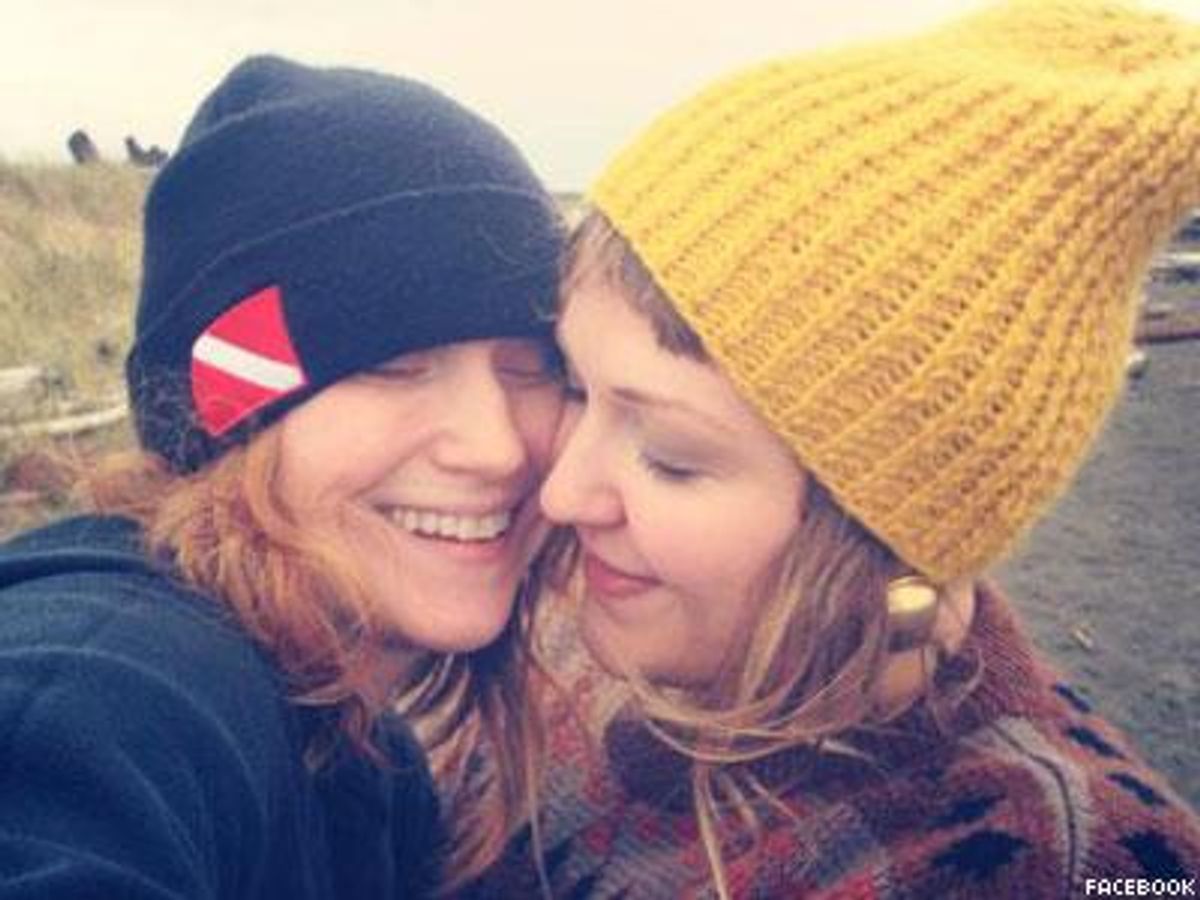

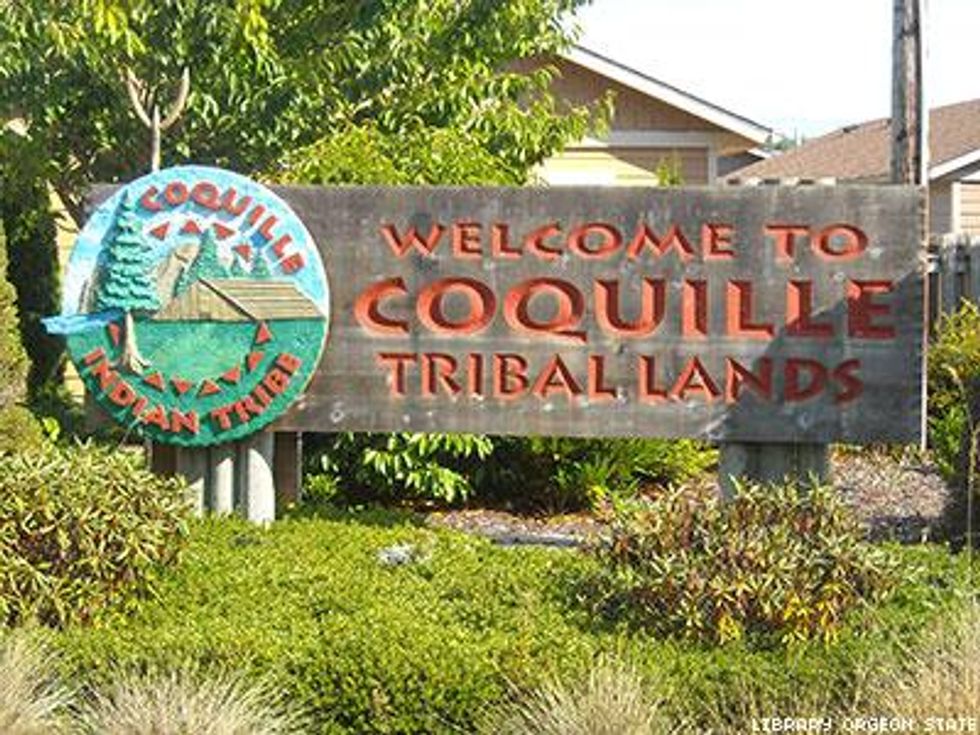 Coquille Tribe, Oregon (2009)
Coquille Tribe, Oregon (2009)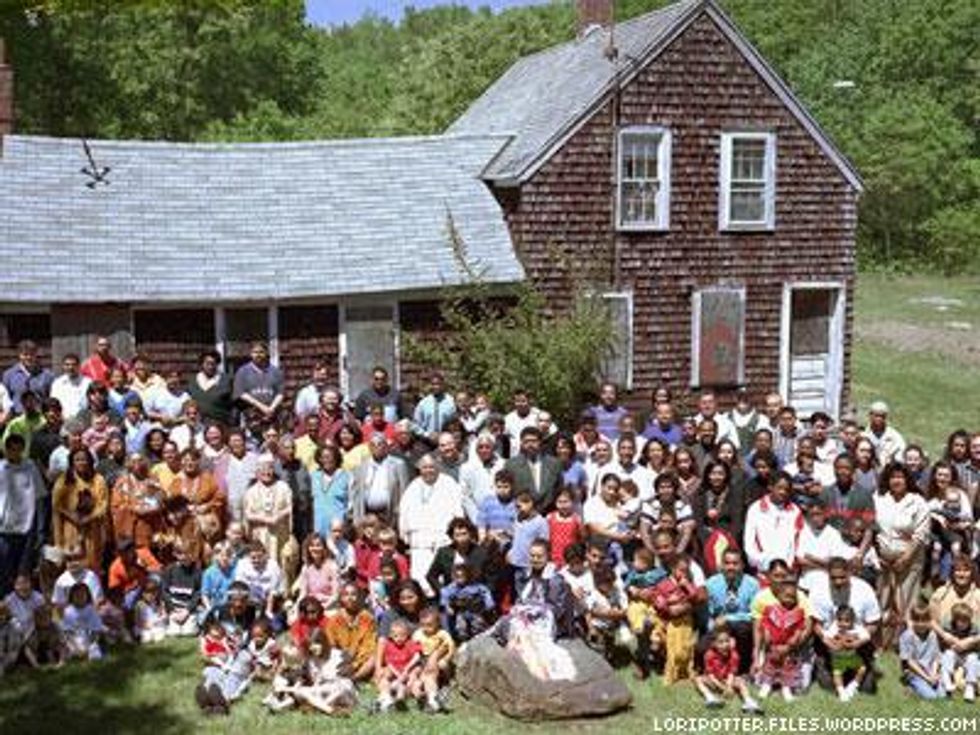 Mashantucket Pequot Tribe, Connecticut (2010)
Mashantucket Pequot Tribe, Connecticut (2010)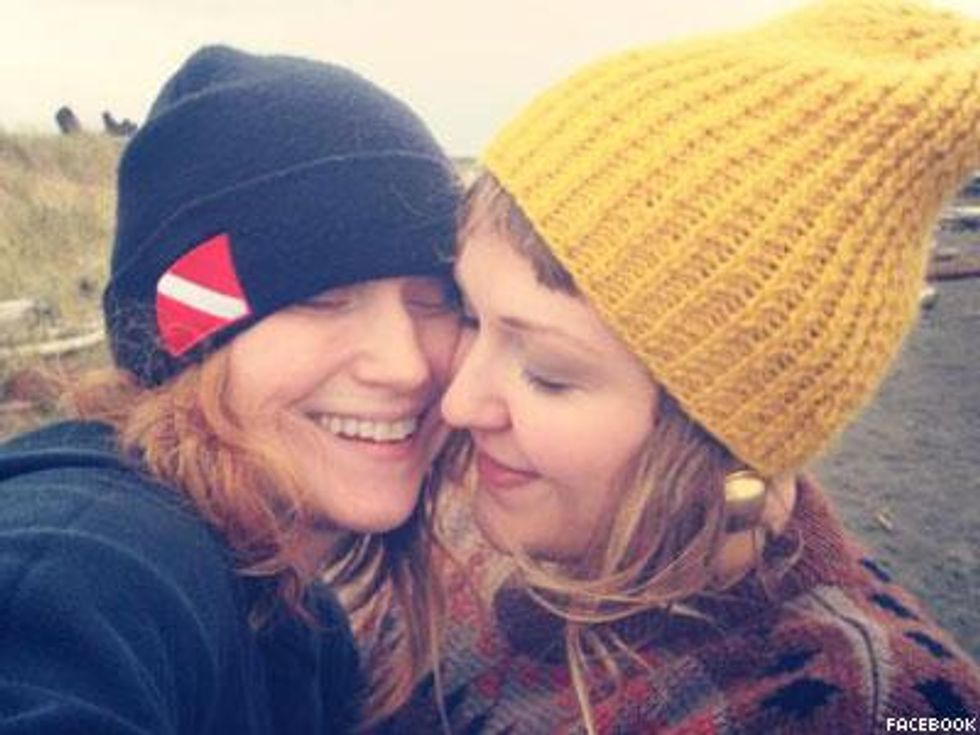 Suquamish Tribe, Washington (2011)
Suquamish Tribe, Washington (2011)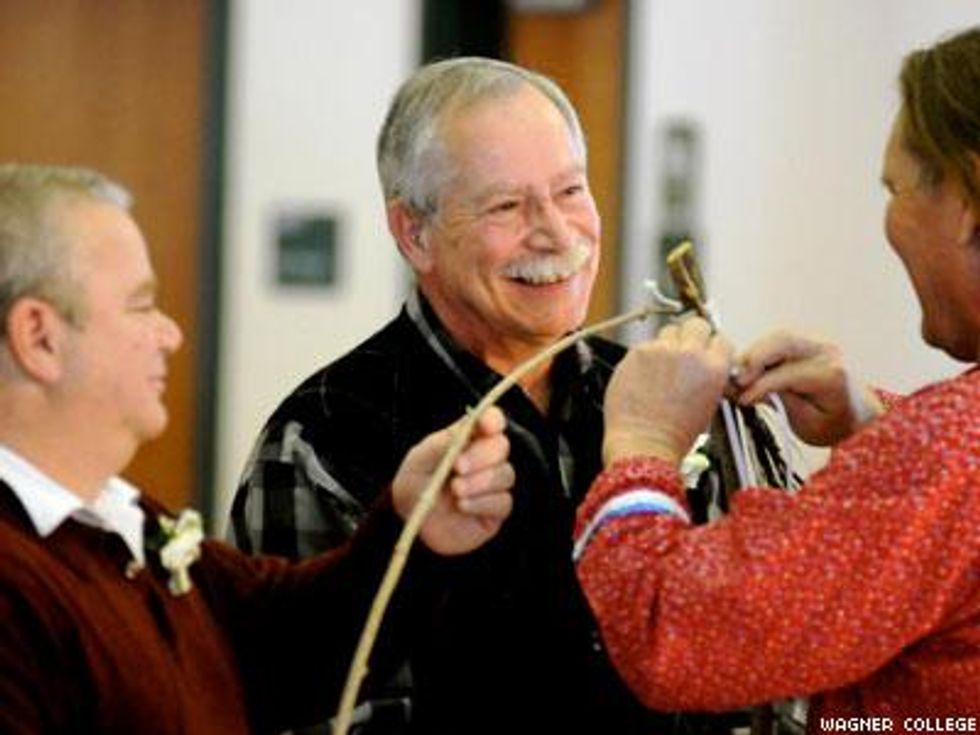 Little Traverse Bay Bands of Odawa Indians, Michigan (2013)
Little Traverse Bay Bands of Odawa Indians, Michigan (2013)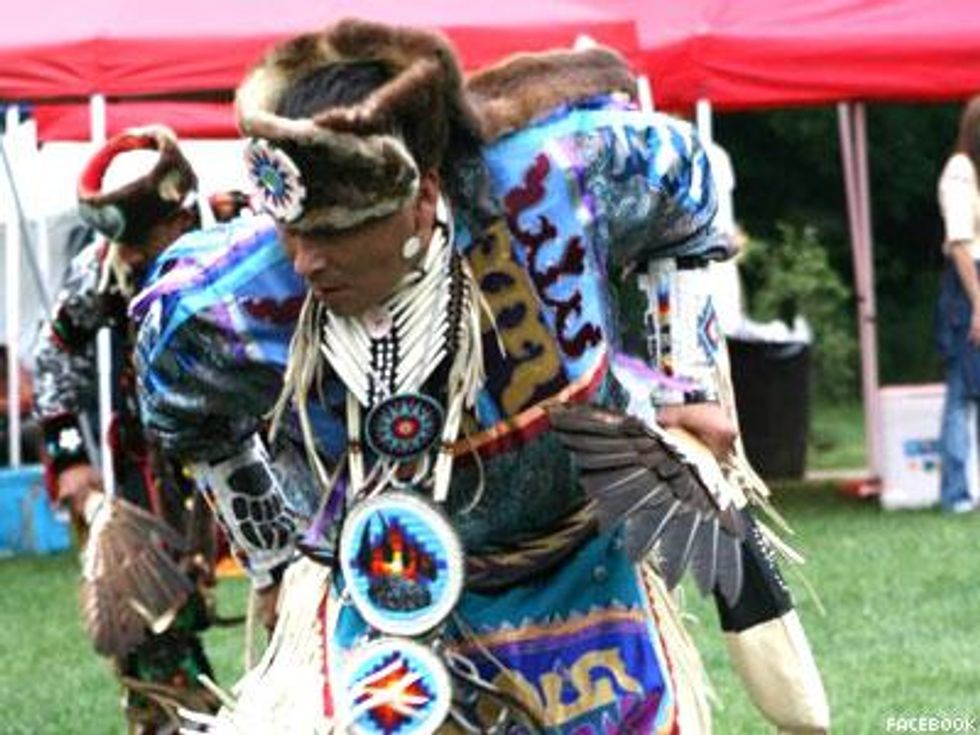 Pokagon Band of Potawatomi Indians, Michigan (2013)
Pokagon Band of Potawatomi Indians, Michigan (2013)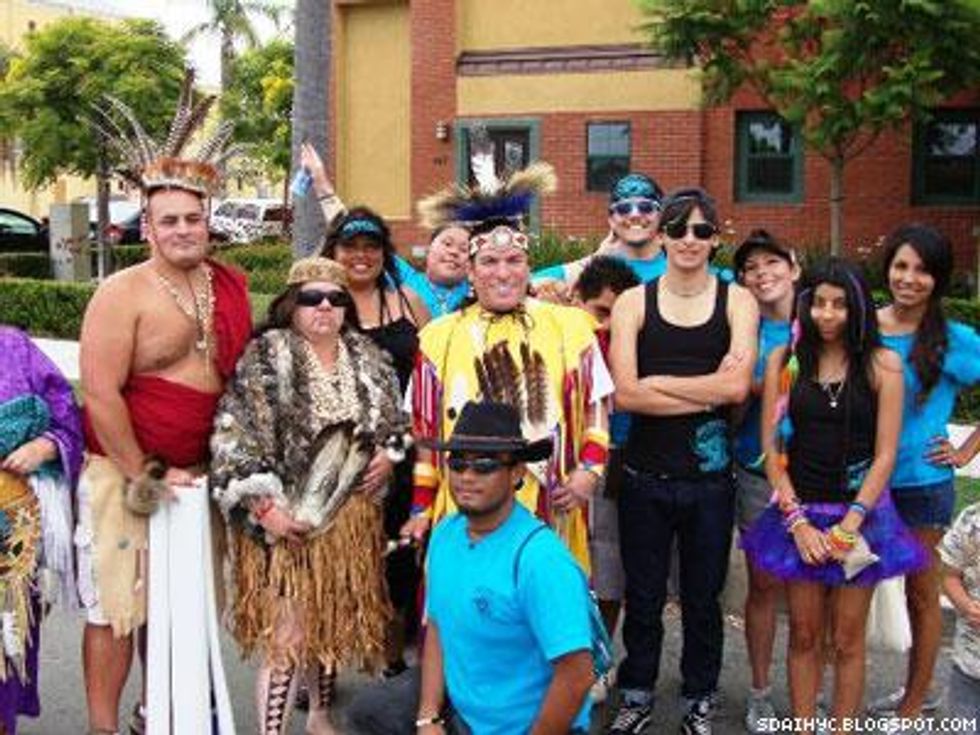 Santa Ysabel Tribe, California (2013)
Santa Ysabel Tribe, California (2013)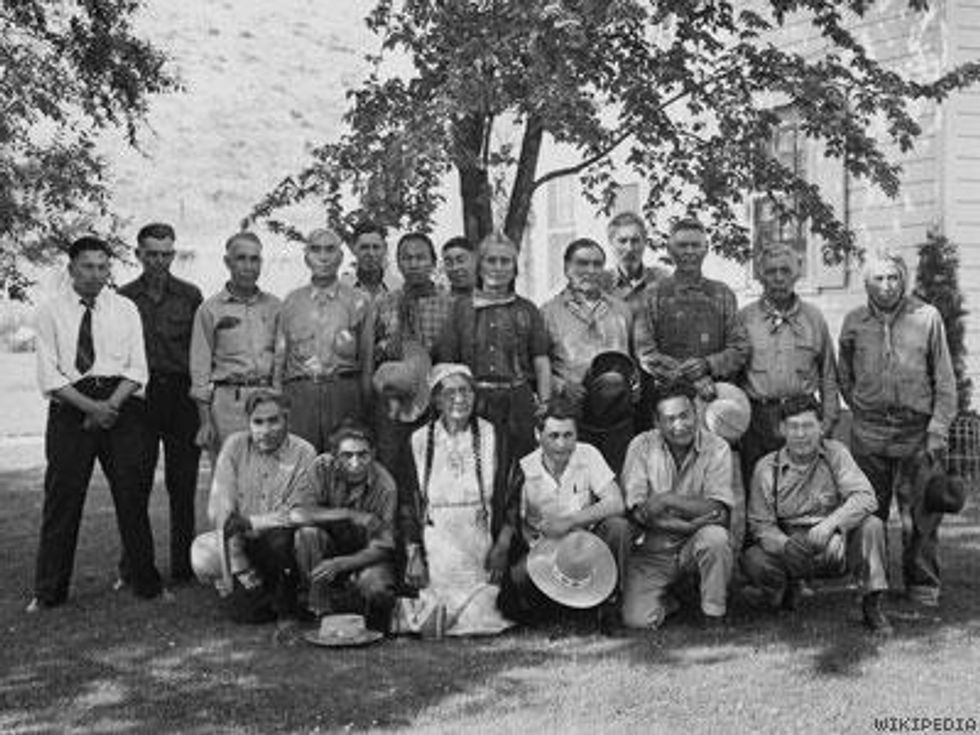 Colville Tribe, Washington (2013)
Colville Tribe, Washington (2013)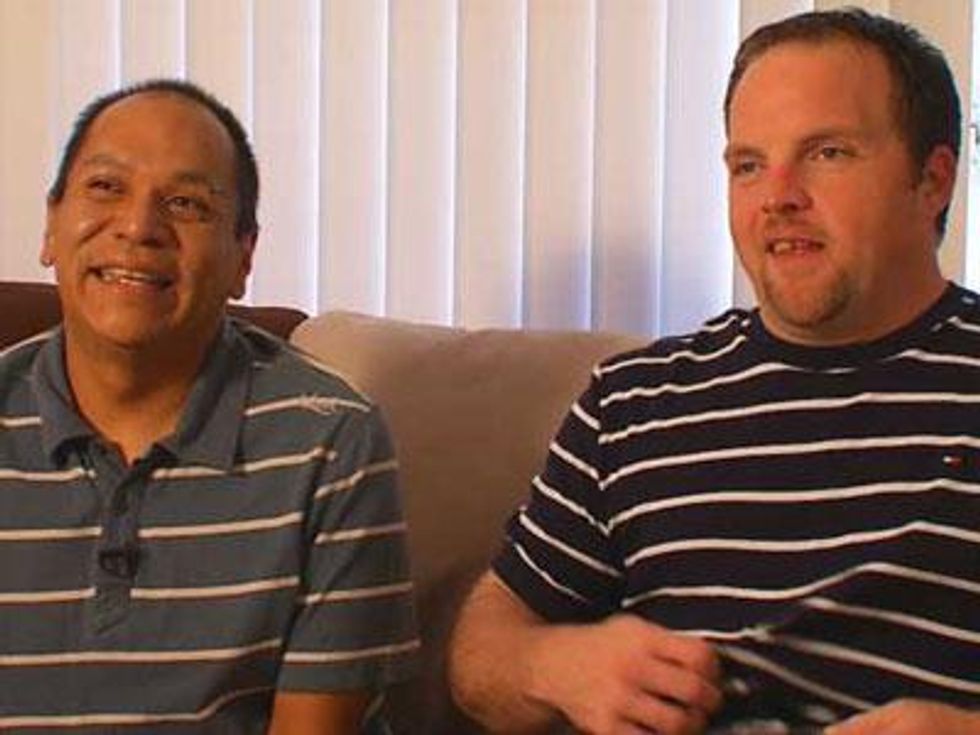 Cheyenne and Arapaho Tribes, Oklahoma (2013)
Cheyenne and Arapaho Tribes, Oklahoma (2013)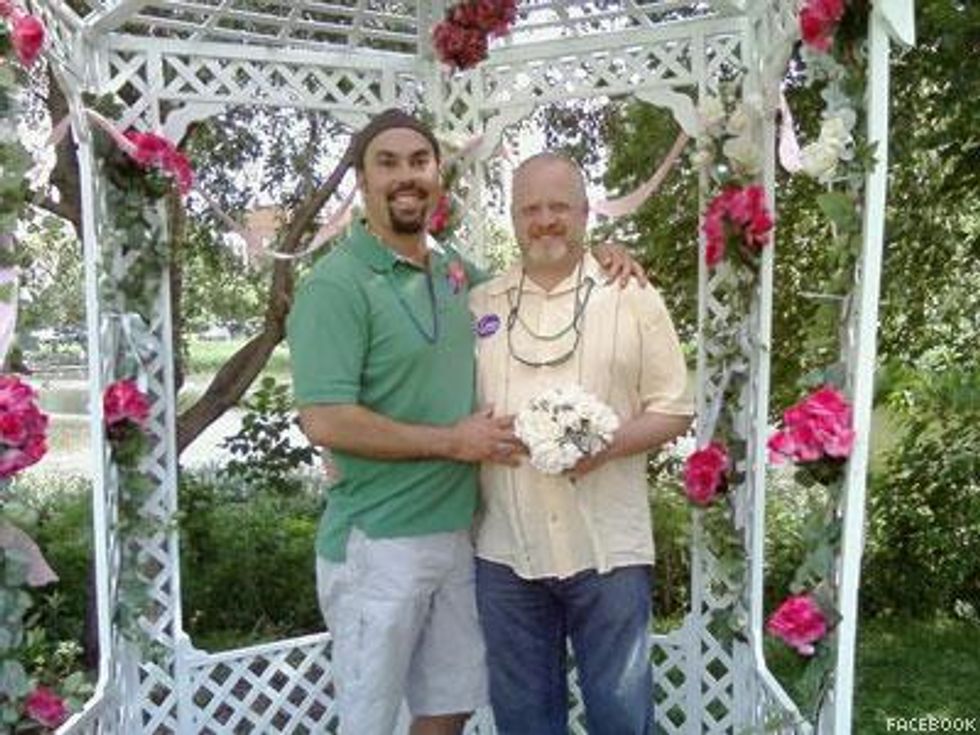 Leech Lake Tribe, Minnesota (2013)
Leech Lake Tribe, Minnesota (2013)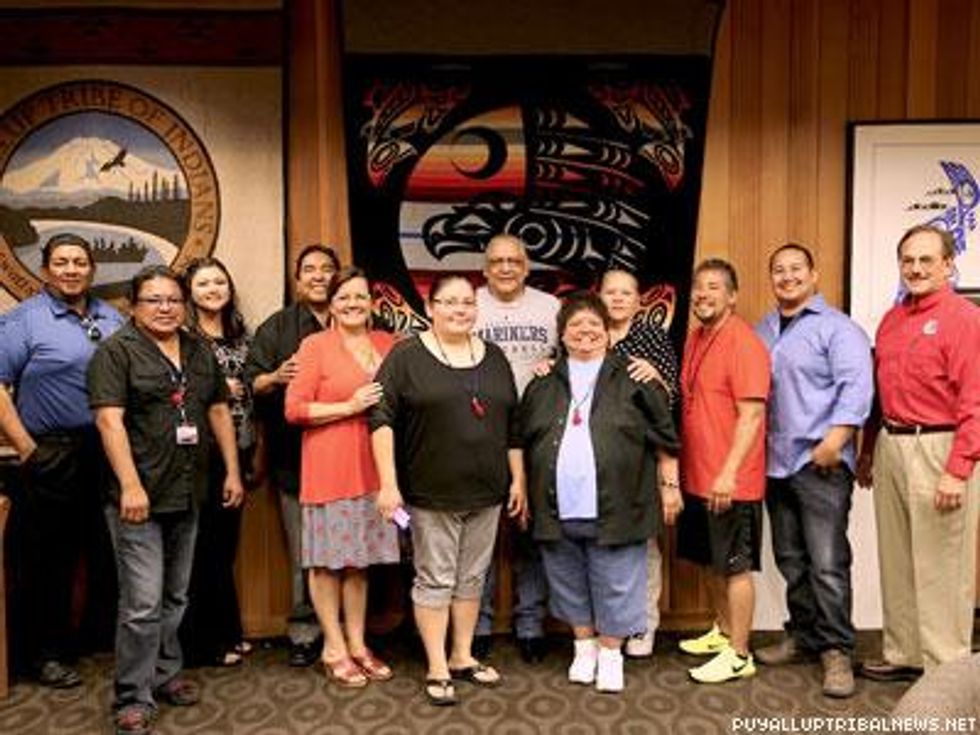 Puyallup Tribe of Indians, Washington (2014)
Puyallup Tribe of Indians, Washington (2014)















































































Viral post saying Republicans 'have two daddies now' has MAGA hot and bothered